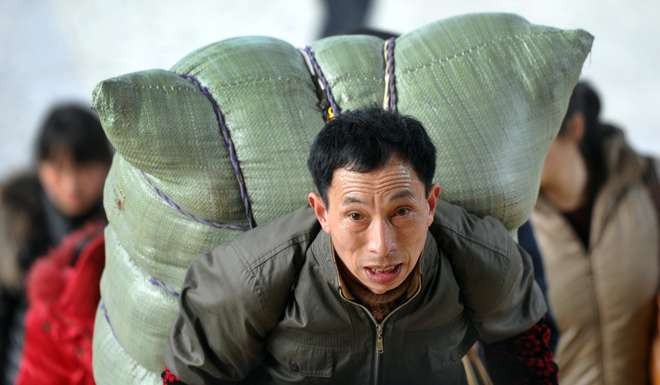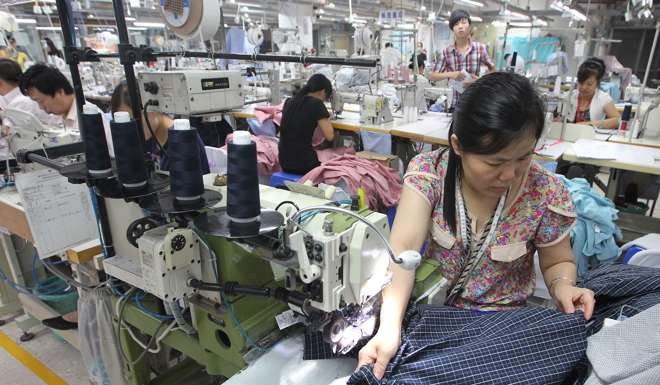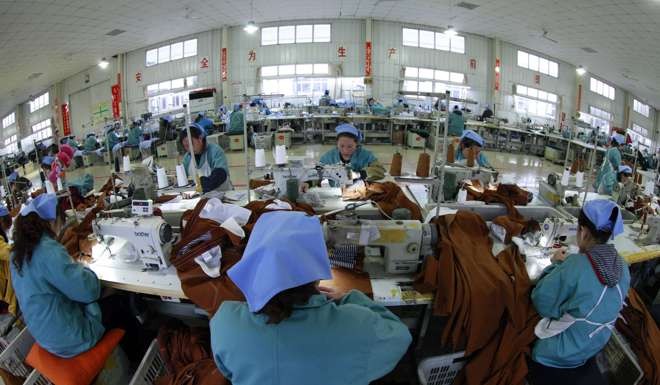

Six elderly workers claim local government’s lack of policy implementation left them with inadequate coverage

Six elderly migrant workers in Shenzhen are suing the local Human Resources and Social Security Bureau, claiming the city government deprived them of adequate pension coverage through its failure to implement central government policies.
The case, which underscores the plight of first-generation migrant workers across mainland China, is expected to be heard by the Yantian District People’s Court next month.
One of the plaintiffs is Chen Shifang, a 53-year-old originally from Henan province, who has worked at an electronics factory in Shenzhen for almost two decades.


“I was still a young girl when I first arrived in Shenzhen, performing the same monotonous role, glueing electronic parts together, day in and day out,” she said. “Why can’t I enjoy the fruits of economic growth after giving my entire youth to Shenzhen?”
Despite having worked in Shenzhen for more than 18 years, Chen has only been able to make payments to her social insurance account for six years.
The first generation of migrant workers, who left their rural homes to seek work on construction sites and factories in China’s major cities, helped forge the country’s economic miracle. But they are now in their 50s and 60s and face uncertain futures due to holes in China’s social security net.
The National Bureau of Statistics said there were more than 277 million migrant workers on the mainland last year. Their ranks have been growing more slowly in recent years as the pace of urbanisation also eases.
They are also growing older, with the average migrant worker aged 38 and a half last year, four months older than in 2014, and 50 million migrant workers – 18 per cent of the total and more than twice the size of Taiwan’s population – aged 50 or older.


Like most of the millions of first-generation migrant workers across China, the six plaintiffs in Shenzhen are not entitled to pensions because they have not paid social insurance contributions for the minimum of 15 years.
Labour activist Wu Guijun, who works for a Shenzhen-based NGO, said that forced many elderly migrant workers to seek other work after they retired.
“After retiring from factories, many continue to work in lower-impact roles such as security guards, domestic helpers or janitors to maintain their income level,” Wu said.
Beijing announced in 2008 that migrant workers would be able to make retrospective social security payments so they could qualify for pensions, but local governments, including Shenzhen’s, failed to follow through with implementation.
The Shenzhen workers are challenging the authorities to fill the policy gap and allow workers to top up their social insurance accounts so they comply with the required 15 years of contributions, and they also want the court to order employers to honour their share of contributions.
If they win the case, it could open the door to social insurance coverage for other first-generation migrant workers.
On the mainland, employees and employers are supposed to make monthly social insurance contributions to cover pension, unemployment, medical, workplace injury and maternity payments. Employers also need to contribute to a housing fund for staff.
But social insurance funds are managed independently by local governments and the funds are not transferable between different provinces.
In addition, the mandatory social insurance policy was poorly implemented in its early years, experts said, and left a large number of first-generation migrant workers without coverage as they approached retirement age.
Dr Peng Peng, from the Guangzhou Academy of Social Sciences, blamed lax monitoring for the poor implementation of the social insurance scheme.
“Ageing migrant workers can only rely on their children, the next generation who are also mostly migrant workers, for their livelihood,” Peng said.
Professor Pun Ngai, an expert on mainland labour issues at Hong Kong Polytechnic University, called on the central government to relax provisions of the mandatory social insurance scheme and allow workers to transfer their employer’s contributions to their home town after retiring or switching jobs.
“After contributing a whole life of prime-time youth, migrant workers deserve a dignified retirement,” Pun said.
She said the inflexibility of the current social insurance mechanism meant that even workers who had managed to contribute for 15 years would be unable to get a full pension because their employer’s contributions could not be transferred.